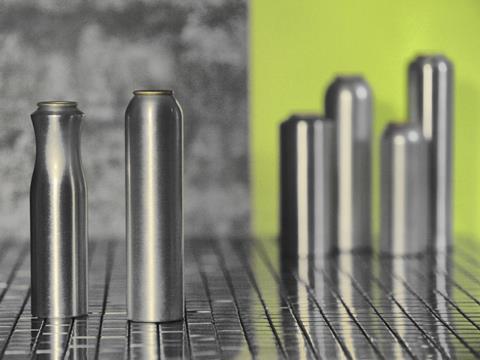
In the first half of 2023, the International Organisation of Aluminium Aerosol Container Manufacturers (AEROBAL) claims that its members’ global shipments of aluminium aerosol cans increased by 6.6% to just over 3.2 billion units – noting a growing interest in CO2 reduction and challenges posed by global economic conditions.
Deodorants, hairspray, and hair mousses are said to have driven market growth by around 8% each compared to the same period last year. The pharmaceutical sector is also thought to have undergone a positive development of almost 5%, while deliveries for shaving foams apparently increased to double digits.
On the other hand, the food and household product sectors, which AEROBAL describes as ‘less important in terms of volume’, underwent a respective decline of 2.5% and 12.5%.
The 27 EU Member States, including the UK, are highlighted as contributors to market growth; South and North America also saw 11% and 6% increases in demand, respectively. Markets in Asia, Africa, and Australia reportedly stalled in demand, while deliveries to the Middle East are thought to have decreased by 8%.
Sustainability, especially the reduction of CO2 emissions, is highlighted as a point of focus for aluminium aerosol container manufacturers and customers alike. While demand for the highest available proportion of post-consumer recycled material is growing, AEROBAL warns that there is currently limited global availability of the high-quality aluminium scrap needed for the ‘technically demanding’ production of aerosol cans.
Furthermore, design for recycling is highlighted as an essential facet of successfully and safely closing the loop on aerosol packaging.
“The manufacturers of aluminium aerosol cans are rising to this challenge and are continuously working together with their partners in the supply chain on innovative and even more sustainable can concepts,” says Gregor Spengler, secretary general at AEROBAL.
High inflation, labour shortages, and a weakening global economy are also emphasised as a looming threat to the aluminium aerosol can industry, despite continual demand.
“In particular ongoing inflation is causing uncertainty among both our member companies and consumers,” Spengler continues. “Companies are facing higher interest rates and investment costs, and consumers are suffering from further loss of purchasing power.
“Whether these developments will impact the aerosol can industry with full force remains to be seen. We hope that the level of investment in our industry will remain high to further expand competitiveness.
“Moreover, demand for fast-moving consumer goods such as aerosol cans has in the past been able to largely decouple itself from negative economic cycles. We hope that this will continue in the second half of 2023.”
Aluminium Deutschland previously called for more readily available post-consumer aluminium recyclate for use in the packaging industry in light of revisions to the Packaging and Packaging Waste Directive, which will mandate the increased utilisation of recycled materials in packaging.
Meanwhile, global shipments from AEROBAL’s members apparently rose to 6 billion units in 2022. Rising demand from the personal care and pharmaceutical industries, and from European and American customers, was credited for the increase.
Also, the winners of its World Aluminium Aerosol Can Award 2023 – rewarded for the visual appeal, functionality, and sustainability-minded features of their packaging – were recently announced.
If you liked this article, you might also enjoy:
The Lidl approach to packaging sustainability
How did Brazil achieve its 100% aluminium can recycling rate – and can it be replicated in the EU?
Experts have their say on the EU’s Packaging and Packaging Waste Directive revisions
A deep dive into the most important packaging sustainability trends and solutions














No comments yet